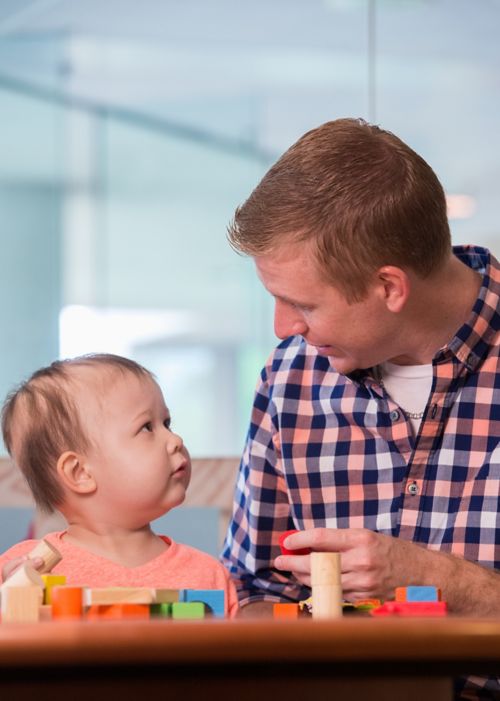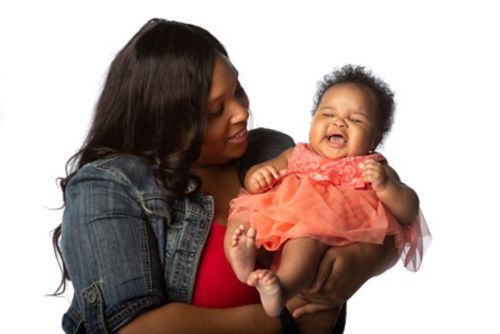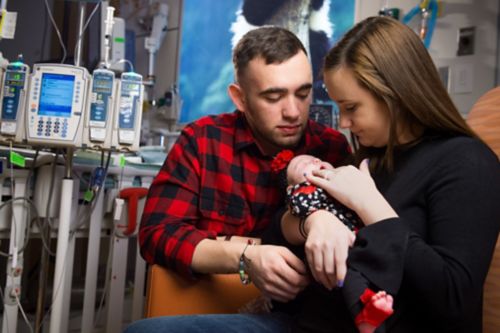How Parents Can Help Their Baby
Babies are soothed in many ways, all of which include the help of a caring adult. You can help your baby feel more secure in stressful situations with:
- Breastfeeding
- Bottle-feeding
- Using a pacifier
- Holding your baby and gently rocking, swaying, or bouncing
- Making a shushing noise
- Using white noise
- Singing to your baby
- Swaddling your baby
- Engaging in skin-to-skin care or kangaroo care if your child’s doctor says it is safe to do so.
Regular daily routines can help too. They make life consistent and predictable. Things like singing a certain song at bedtime or when getting dressed in the morning help your baby know what to expect and feel safe. You’ll also want to keep doing other things to help your baby’s development, like:
- Talking (face-to-face interaction)
- Reading out loud
- Playing with toys
How Parents Can Help Their Toddler
Be sure kids know that they didn’t do, say, or think anything to cause their illness. This is a time of curiosity. So be ready with simple answers to questions.
Kids use play to gain skills like creativity, problem-solving, and copying. Research studies have found that, for kids with health conditions, play can:
- Lower their fears about the hospital
- Prevent anxiety
- Affect how they perceive pain
- Help them work through strong feelings
Toddlers also start to show independence. They have a desire for control. This can make treatment hard for parents. Offering choices can help, when possible. You might ask things such as:
- “Do you want the pink bandage or the blue one?”
- “Which medicine do you want to take first?”
- “Do you want to play a game or watch your movie after your treatment?”
Be sure to only offer choices that work for you. And limit the choices to 2 for toddlers. You’ll also want to begin to set consistent limits and enforce rules. These things add to a feeling of security for kids. That said, you want to choose your battles. For example, your toddler cannot hit another person—this is a limit worth setting. Yet, if they want to wear pajamas and slippers instead of the outfit you picked out, that’s likely OK.
Toddlers also thrive emotionally when they are praised. This praise is most helpful when it is specific. For example, it is better to say, “Good job taking your medicine!” than “Good job!” Also, you want to praise your toddler, or tell your toddler what they are doing right, much more often than you correct them or set limits.
Resilience Through Relationships
Children are resilient. They can bounce back from setbacks and thrive. As humans, we all have unhappy moments. But through caring and responsive relationships, babies and toddlers work through challenges. This supportive contact with parents and caregivers helps babies and toddlers manage their emotions. They also help young children learn about ways to self-calm and cope.
These coping skills help kids rebound from setbacks and thrive again. You, too, can bounce back from challenges. Taking care of yourself helps build your resilience. It is another protective factor for families of young children.



